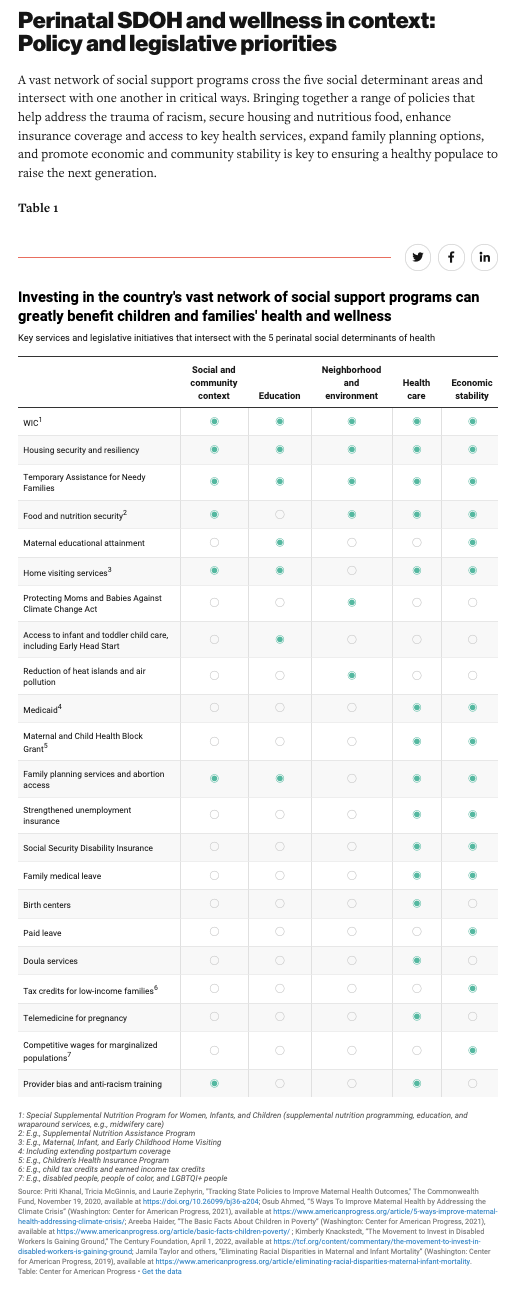In Brief
A new report from Center for American Progress reveals how a holistic approach to perinatal health through the lens of the social determinants of health can impact birth outcomes, postpartum wellness and subsequent child development.
The organization looked at key initiatives and policies that intersect with the five social determinants of health and the role these key health determinants play in later indicators of wellness:
- Health care: access to quality health care, maternal health coverage and reproductive health
- Neighborhood and physical environment: neighborhood health and safety, housing insecurity, environmental pollution and climate change and barriers to services during the pandemic
- Education: social support services that provide information and resources
- Economic stability: employment status, poverty status, food insecurity and supportive policies such as paid family and medical leave
- Social and community context: considerations of discrimination related to race, disability status, gender identity, incarceration status and community
The report highlights how bringing together a range of policies that address the traumas of racism and increase access to housing, nutritious food, essential health services and family planning options provides the conditions necessary to ensure a healthy populace to raise the next generation.
Why This Matters
Numerous studies examine pregnancy and birth’s medical and physical aspects, but it often ends there. Understanding how social determinants of health influence the mother and child before and after birth is essential for shaping policies and practices that reduce inequities and support healthy children and families.
The Center for American Progress report underscores how a multipronged, next-generation approach addresses core harms and inequities experienced in marginalized communities during and after perinatal care.

The Opportunity
Communities, businesses, nonprofits, and governments can invest in core strategies that eliminate silos and work across sectors to address historical inequities and racial disparities that adversely impact social determinants of health for women and children of color.
These critical investments support the health and well-being of entire communities by reducing the long-term social and fiscal costs of health care inequities, unemployment rates, food insecurity, mental health supports, community safety, climate change, environmental factors, and more.
Using essential tools, data collection, and community voices and insights will be vital in building relevant community-based practices that support the goals and needs of the community and mitigate long-term costs and risks.
Related links:








Comments